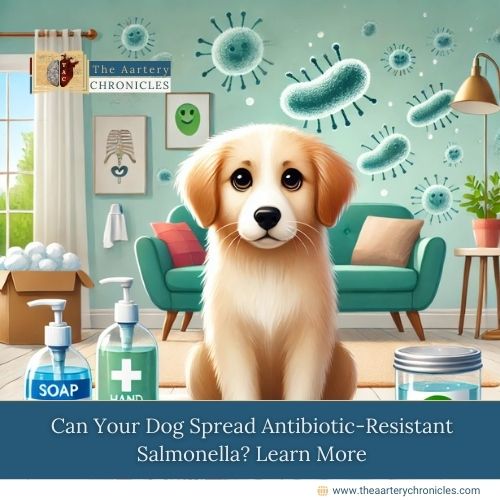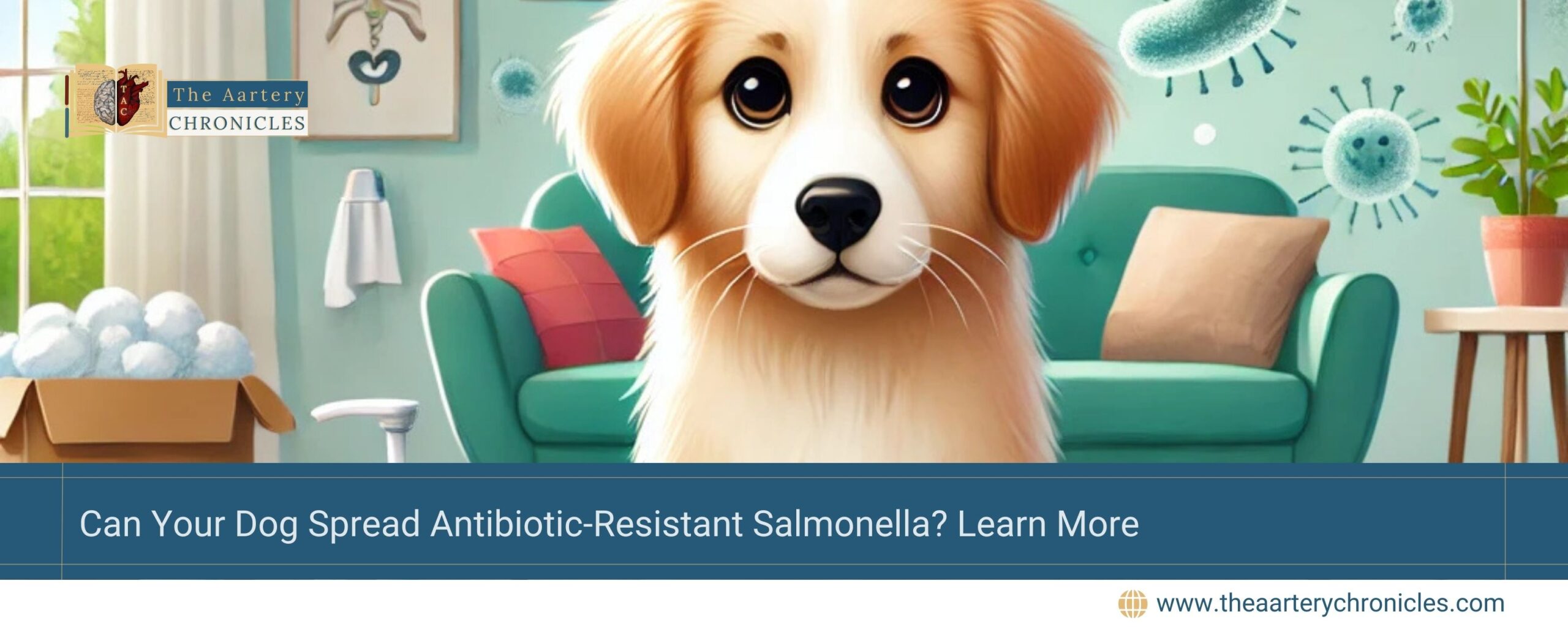

Are Pet Dogs Silent Spreaders of Antibiotic-Resistant Salmonella?
How Your Furry Friend Might Be a Hidden Risk
Antibiotic-resistant Salmonella is a growing public health concern, and researchers are detecting an often-overlooked source: household dogs. While Salmonella infections are typically linked to contaminated food or contact with infected individuals, recent studies suggest that our beloved pets might also play a role in transmitting this zoonotic pathogen.
What is Antibiotic-Resistant Salmonella?
Salmonella bacteria have evolved to withstand antibiotics, making infections harder to treat. These bacteria can spread through
- Contaminated food
- Improper hygiene
- Contact with infected animals
In humans, nontyphoidal Salmonella can cause symptoms like
- Diarrhoea
- Fever
- Abdominal cramps
In severe cases, it potentially leads to life-threatening complications.
Dogs: The Overlooked Link in Salmonella Spread
According to a Penn State study, dogs may unknowingly harbour and spread Salmonella to humans. Researchers identified 77 suspected zoonotic cases in which the bacteria likely moved from dogs to humans. The strains, collected from 17 U.S. states, revealed antimicrobial resistance genes, raising concerns about the role of companion animals in disease transmission.
Why Dogs Are a Unique Risk

Unlike livestock, dogs share our homes and daily lives.
- They sleep in our beds, lick our faces, and are often treated as family members.
- This close bond creates ample opportunities for zoonotic transmission.
- The risk of infection is usually increased due to
- Improper food handling
- Contaminated pet treats
- Asymptomatic infections in dogs
How Common is Salmonella in Dogs?
Salmonella infections in dogs are rare but possible. Some dogs show symptoms, while others carry the bacteria without any signs of illness. The proximity of dogs to humans amplifies the risk, especially when hygiene practices are neglected.
The Role of Hygiene in Reducing Risk
Simple hygiene measures can go a long way in protecting both humans and pets:
- Wash hands thoroughly after handling pets, their food, or waste.
- Avoid feeding dogs raw or undercooked meat.
- Regularly clean pet bowls, toys, and bedding.
- Be cautious with pet treats, especially during outbreaks linked to contaminated products.
The Bigger Picture: A One Health Approach
The “One Health” framework emphasizes the interconnectedness of human, animal, and environmental health. This approach calls for sustained biosurveillance and responsible use of antibiotics in veterinary medicine to mitigate antimicrobial resistance.
Balancing Risks and Benefits of Pet Ownership
Owning a dog offers numerous physical and mental health benefits, from reducing stress to encouraging physical activity. The goal isn’t to discourage pet ownership but to raise awareness of potential risks.
Key Takeaway
Your furry companion might carry more than just love and loyalty—they could also harbour bacteria like Salmonella. By practising proper hygiene and staying informed, you can enjoy the joys of pet ownership while keeping your family safe.
Did You Know?
Salmonella has likely coexisted with humans for over 10,000 years, coinciding with the domestication of animals. This enduring pathogen reminds us to stay vigilant and prioritize hygiene in our shared spaces with pets.
Protect Your Pack: Simple Steps for a Safer Home
- Hand hygiene is non-negotiable.
- Keep pet food areas clean and organized.
- Monitor for pet food recalls and avoid high-risk products.
Stay informed, stay safe, and cherish the unique bond with your pet—without compromising your health!
Source: Inputs from various media Sources

Dane
I am an MBBS graduate and a dedicated medical writer with a strong passion for deep research and psychology. I enjoy breaking down complex medical topics into engaging, easy-to-understand content, aiming to educate and inspire readers by exploring the fascinating connection between health, science, and the human mind.








